Main Content
Module 1: Introduction to the Person and Profession
Counseling Theories
Counseling theories connect and organize a myriad of thoughts, research, and practice into sets of valuable guidelines for the helper to follow. Theory (and its resulting guidelines) helps to determine the cause of a problem, provide possible solutions, assist the helper in good communication, assist in the development and maintenance of a therapeutic relationship, and ensure good ethical practice. Helpers who do not rely on theory often work with no direction, develop poor goals with their clients, and fail to instill appropriate objectives and interventions. Work becomes ineffective with a trial-and-error format, risking harm to the therapeutic alliance and the client. This module will cover the following theories; click on each of the images to reveal the names of the relevant scholars and details about each theory.
The Psychodynamic Approaches
-
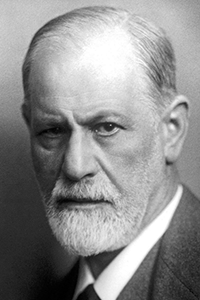
Sigmund Freud, from Wikimedia Commons" psychoanalytic theory: Psychoanalysis is based on the work of Sigmund Freud. This theory stems from the belief that our thoughts and behaviors (which combine to make our personality) develop from the tensions created by our unconscious motives and unresolved childhood issues. Freud believed that the majority of our childhood conflicts are sexual in nature and that we do not have control over the development of our personalities (further reading can be found on the American Psychoanalytic Association website). -
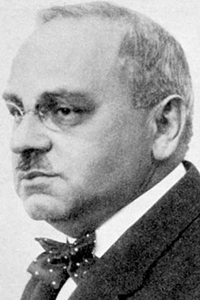
Alfred Adler, from Wikimedia Commons" Adlerian theory: Adlerian theory was developed by Alfred Adler, originally a student of Freud. Like Freud, Adler believed that early childhood experiences determine much of our adult personalities. However, he believed that our social relationships and their influence on us primarily help to shape personality, not psychosexual experiences. Adler further stressed that we strive to have positive social relationships and to make a difference beyond our personal spheres of influence. Adler also believed that we are personally responsible for who we are and what we do. Further reading can be found on the North American Society of Adlerian Psychology website.
Cognitive and Behavioral Approaches
-
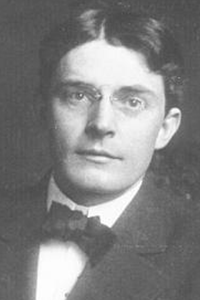
John Watson, from Wikimedia Commons"
behavioral theory: Based on the works of Pavlov, Watson, Thorndike, Wolpe, Eysenck, Skinner, and others, behavioral theory focuses on understanding and changing individual behavior. There are several approaches categorized under this theory, but they share the overall goal of finding natural incentives (called reinforcers) that either increase positive behaviors or decrease negative behaviors. Behavioral therapists usually only focus on what can be observed and measured, not on what is felt or thought. It is believed that if observable behaviors can be changed, then thoughts and feelings will also change. Further reading can be found on the American Psychological Association's site on behavior analysis. -
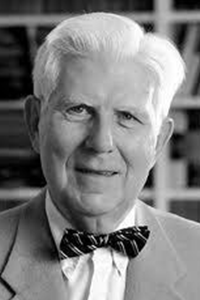
Aaron Beck, from Wikimedia Commons cognitive theory: Cognitive theory was developed by Aaron Beck, who focused on how some disorders (such as depression and anxiety) stem from what he called cognitive distortions, or errors in logic. To change these distortions, the therapist must help the individual identify the distorted thoughts and beliefs and challenge them, creating more healthy thoughts and beliefs. Further reading can be found on the Beck Institute website. -
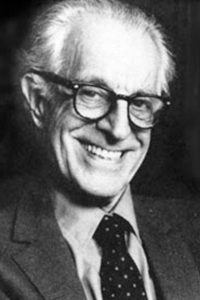
Albert Ellis, from www.nacbt.org cognitive-behavioral theory (CBT): CBT actually combines many different approaches, including rational emotive behavioral therapy (the original form of CBT developed by Albert Ellis) and dialectical behavior therapy. CBT combines a variety of strategies from both behavioral and cognitive theories, focusing on restructuring irrational thoughts, developing healthy coping strategies to decrease stress, and developing appropriate problem-solving techniques.
In rational emotive behavioral therapy, Ellis implemented the ABC model. A stands for the triggering event, B stands for the irrational beliefs we develop from the triggering event, and C stands for the resulting consequences—not from the triggering event, but from the irrational beliefs that develop. Further reading can be found on the Albert Ellis Institute website.
Humanistic Approaches
-
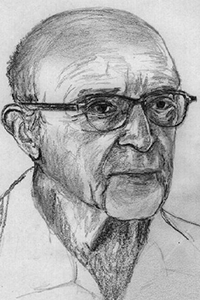
Carl Rogers, from Wikimedia Commons person-centered theory: Developed by Carl Rogers, the person-centered approach requires little technique compared to the behavioral or cognitive-behavioral approaches. What is required is that the therapist demonstrate congruence, unconditional positive regard, and empathy with the client. These three conditions help the client reach self-acceptance, increase self-worth, and reduce the divergence between the actual and ideal selves. Further reading can be found on the New York Person-Centered Resource Center website.
-
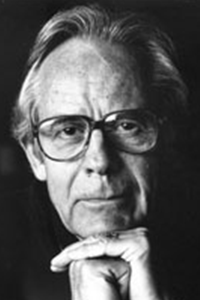
Rollo May, from www.nndb.com existential theory: Existential theory is as much a philosophy as it is a therapeutic approach. It is built on the works of such philosophers as Tillich, Heidegger, Kafka, Kierkegaard, Nietzsche, and Sartre. While the father of existential therapy is considered to be Rollo May, Victor Frankl and Irvin Yalom are also well known for their use of the theory and for contributing to the approach. The central idea is that inner conflict arises from the confrontation of existence and purpose in life. Yalom noted that death, the obtainment of freedom, personal responsibility, isolation, and meaninglessness are the ultimate concerns we constantly struggle with. The goal of therapy is to help the individual evaluate his or her life and choices, understand personal responsibility, find purpose, and be able to accept the life he or she has, as well as, ultimately, death. Frankl took the tenets of existentialism, focused on finding purpose in life, and developed logotherapy. Further reading can be found on Louis Hoffman's site on existential therapy.
